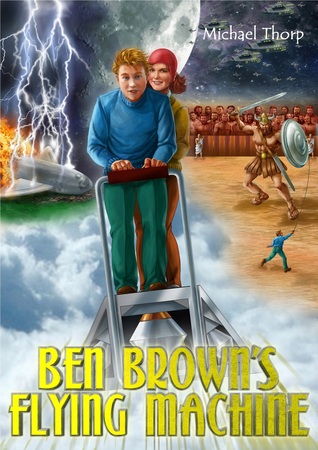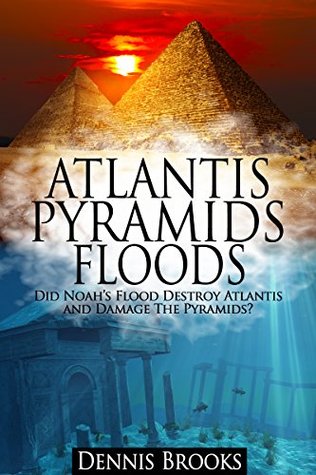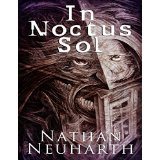Ingrid Hall's Blog, page 8
September 13, 2015
Review of 2147: Book One Revelations by SDZ Whitaker

Author SDZ Whitaker says he is a chubby, pink Shrek lookalike who just recently published his first book. It took about 2 years to write and he says he is really quite proud to have finished it. He has had a variety of jobs ranging from the interesting to mind numbingly boring, including being a croupier and working at the BBC for a number of years. He has loved Sci-Fi since he could understand the concept and is a proud Trekker.
It’s the 22nd Century and earth looks very different. The USA no longer is a dominant world power and it has been replaced with a much broader geographic region and coalition: the United Continent of America (UCA).
Other, stronger coalitions have emerged and formed a federation called the G6 to oversee developments on Earth. Things are going along swimmingly until a much smaller coalition of nations, the Independent Nation Collective (INC), invents the Light Speed Drive (LSD) and threatens to upset the balance of power.
Meanwhile, aliens, who really did visit Roswell in 1947, are also threatening to muck things up if the earthlings achieve light speed capability with installation of the LSD in an interstellar space vehicle.
Are you confused yet? To be honest, the plotline gets a bit convoluted as national entities bicker back and forth ad nauseam over how this space drive will play out and change things up — not necessarily for the better.
First-time author SDZ Whitaker has taken a fairly good concept and expanded it to 294 pages of sometimes stilted dialogue that threatens enjoyment of the story in many places. A middle-level bureaucrat is tasked with the job of stopping development of the LSD, but gets caught, yet beats the rap somehow that’s never fully explained.
The aliens in the story, two representatives of a fairly benign race of reptilian beings called the Azranaal, watch all this jockeying for power with bemusement, and discuss their boredom at being stuck at the out-of-the-way space station near the edge of our solar system — like two Soviet soldiers in the long-ago Cold War stationed in a godforsaken part of Siberia. It’s quite funny, really, as we see the human race through their eyes.
Still, things heat up a bit as the soldiers’ C.O., the Supreme Chancellor Theera, comes to visit, intent on an eventual invasion of Earth. He thinks it will not be too difficult, “as these Neanderthals were only ever minutes away from erupting into a new war.”
But wait. There’s an unexpected twist: the aliens really want Earth’s overpopulated humans to utilize the LSD to populate the outer rim of the universe, thus easing overpopulation on Earth, and so they offer their help. Will this be their tactic for peacefully taking over the planet? Will the politicians who ultimately welcome the offer survive the seemingly gracious offer?
The reader must hang on for another third of the book before finding out.
2147: Revelations has many good things going for it: a good plotline that challenges the imagination; well-written characters that are vulnerable and likeable — both alien and human. But the book suffers from a chronic lack of commas and good proofreading, and then there is the tendency for the dialogue to sound like a C-Span transcript.
I’m giving this book four stars based on sheer effort on the part of a new author to deliver a story that must have been clear in his mind; it just got a little overdeveloped and wound up becoming a tome instead of a fast-paced read.
Better execution of the basics of good fiction should make his next book better. I, for one, look forward to it.


September 10, 2015
September Offer: Manuscript Assessments Just £25 ($40)
I must be mad. However, this month I am offering all authors the chance to have their manuscript assessed for the rock bottom price of just £25 or $40.That is an INCREDIBLE saving on my usual rate of £75 or $120
If you are in ANY doubt, as you why you need an assessment click here for further details!
Ready to go ahead? Contact me using this form.
If you haven’t already done so, you can download Our Day of Passing – An Anthology of Short Stories, Poems and Essays FREE of charge by following this link to Smashwords.
[contact-form]


September 8, 2015
Review of Bonjour Amigos by David Gustafson

Colorful and outrageous characters abound in this very witty, Las Vegas insider story.
“Barry Toon was a survivor. He knew when to step aside and when to stick his foot out.”
That’s just one of the dozens of gold-plated turns of phrase scattered throughout this rich and compelling look at Las Vegas’ sometimes darker side.
Salome and Sky Langer are incestuous twins, heirs to a beer brewer’s fortune. They have come to Vegas to “swing” with the sweatiest, dirtiest, most unappealing partners they can find. Carla Flamingo, the flamboyant “ladyboy”, cruises the summertime plethora of Vegas tourists, looking for an unsuspecting mark who won’t know what she’s got hidden until it’s too late.
This is a wild ride of a story that comes to glittering life under the throbbing neon of the resurgent City In the Desert. There’s the unfinished complication that entails an unconscious, naked police officer. There’s Big Sexy, who haunts the poker tables in search of the next hapless rube. And, there’s international playboy Khalid Fasad, who is “convinced he would live to see this strutting empire collapse into the stink of its imaginary exceptionalism.”
Bonjour Amigos is the kind of book you don’t want to put down, for fear you’ll miss what happens next. The ensemble cast interplay nicely to portray a side of Vegas never seen by the hordes of tourists who visit each day.
It’s very well-written. A few of the more remarkable lines:
“None of the horny prowlers suspected that the petite island beauty with those perfectly sculpted retail breasts was a ladyboy concealing an unrelenting laddie-boy surprise between her legs.”
“Sometimes the best-laid plans find themselves grabbing their ankles instead.”
Then, there Millie and Cody, two exuberant newlyweds who decide to invite Miss Flamingo along to share in their honeymoon bliss. So much carnal exposition, so little time.
David Gustafson has written a “breezy noir satire” that lives up to its billing. I give this book five stars and challenge anyone to put it down after the first three chapters.


September 3, 2015
Review of End Times at Ridgemont High by Ian Welke

Ian Welke’s short stories have appeared in KZine, Big Pulp, Zombie Jesus and Other True Stories, and the American Nightmare anthology amongst others. His first novel, The Whisperer in Dissonance, was published by Omnium Gatherum Media in 2014. Before writing full time, Ian was lucky enough to work at Blizzard Entertainment and at Runic Games. These days, when he’s not at his desk writing, Ian enjoys a variety of games. His favorites tend to be elaborate board games with many pieces and rules to confuse, though he’s happiest going mad with his characters in the Call of Cthulhu RPG.
Surf’s up, dudes! This quirky sci-fi send-up of Fast Times at Ridgemont High is a winner.
The characters in this novel are based loosely on the movie (hence the name), but that’s where the similarities end. In this well-written story that’s partly coming-of-age and horror mashup, the kids must get to the bottom of mysterious forces threatening the small coastal town of Ridgemont, and the tale spins out expertly in the hands of the author.
Evelyn MacIntire and her teenage friends risk discovery by hooded cult members as they try to solve the mystery before it’s too late, taking over everyone in Ridgemont — including Evelyn’s parents, the school’s principal, and the members of the sinister Esoteric Order of Dagon, a new church in the community.
The school stoner, Dean Bolek, is increasingly troubled by visions of jelly-like waves and menacing sea creatures the size of a barn. Chris Patkany, and his friend Mike watch helplessly as some strange force fries a full-blown Orca whale at Marine World, where they work.
Before all this started, Evelyn’s biggest worry was that she wouldn’t lose her virginity until she was in her twenties, when she could escape the strict scrutiny of her parents. Now, she and her friends must struggle just to survive as seemingly everyone in the small town but these four succumb to the threat.
The author has penned a fast-paced novel that keeps the reader’s interest up as pieces of the puzzle fall into place and the kids fight not just for their lives, but for the good of all mankind.
There are some good turns of phrase, many of them threatening and cinematic:
“One (creature) smears into black smoke and whistles around in the air above the seat, and reforms into a person-shaped field.”
“There’s a buzz in the air like water on an electrical line, but there’s no electric line to explain the hum.”
“She has the demeanor of a pissed-off lion, just looking for a gazelle to take it all out on.”
End Times at Ridgemont High is first-rate horror masquerading as a YA thriller. It’s rich and satisfying, right up to its surprise ending. You won’t be disappointed.
I give this piece of outstanding fiction five stars.
August 31, 2015
Review of Ben Brown’s Flying Machine by Michael Thorp

Michael Thorp was born and raised in Auckland, New Zealand. He has lived in Australia, China, England, India, South Korea, and Cambodia, traveled through over forty-five countries, made two award winning low-budget *feature films, a pilot comedy news satire show, and a few music videos. Ben Brown’s Flying Machine is his first novel.
Ben Brown’s Flying Machine is a hugely imaginative read, complete with a boy genius who invents a fantastical flying machine in his barn, giant space aliens, and enough twists and turns to satisfy any science fiction aficionado.
The story begins as Ben, the achingly vulnerable protagonist, loses his father at a young age. He has inherited his father’s penchant for invention, however, and it stands him in good stead when a NASA spacecraft, back from a mission to deep space, crashes in his wheatfield and disgorges an unlikely aged alien, who touches Ben and transmits the sum total of his alien knowledge — which is far-advanced compared to anything on Earth — to Ben in the blink of an eye.
Ben’s newfound knowledge comes along just in time to save the heavily mortgaged farmstead, and Ben quickly becomes an international celebrity by building his incredible flying platform. The apparatus runs on a revolutionary drive system unheard of by Terran scientists and researchers, and Ben quickly makes plans to utilize his flying contraption to explore the vast reaches of uncharted space.
There’s a love interest, of course, but the charming Maryann does not figure too heavily in the action — just enough to keep it interesting.
Ben flies up into the stratosphere and well beyond, into a strange new galaxy peopled with giants, the Nephalim, supposedly descended from angels. They rule their empire with an iron fist and Ben is hard pressed to stay alive.
Here, to be honest, the plotline gets a little thin and the reader is required to proceed with a minimum of backstory. Somehow, a plot to invade Earth is getting underway just as Ben arrives and he must figure out a way to stop it, free some wretched slaves and still make it back to Earth unscathed.
It’s a bit of a stretch, credibility-wise, but somehow, the author brings it off with the aplomb of an old-fashioned science fiction movie director from the Fifties. If you can suspend your disbelief and just go along for the wild ride, it’s an enjoyable read.
One other item of note. The author is not from the United States, where the first half of the book is set. The reader — if he’s an American, like me — keeps stumbling over words that just aren’t used in the U.S., like kerb and cheeky and spanner. Not a big deal, but it got a bit awkward for me.
I give Ben Brown’s Flying Machine four stars, mostly on the basis of sheer imagination.


August 25, 2015
Review of Atlantis Pyramids Floods by Dennis Brooks

Dennis Brooks has spent over 20 years researching Atlantis. In 1995 he found that the Florida Plain matched the description Plato gave as the Plain of Atlantis. Since then, he has been looking for other ways to connect Atlantis to the Americas and Egypt. In 2012 he published a book called Atlantis, Ten Tribes of the Americas.
Did the ancient civilization of Atlantis truly exist?
Author Dennis Brooks in his short book Atlantis Pyramids Floods makes a compelling case that they did. Drawing on research as varied as the writings of Plato, a document called the Oera Linda book (allegedly one of the oldest on record), and an account by archaeologist Frank C. Given, the author points to an area on what is is now the state of Florida
The environs that made up the ancient kingdom might very well have been much larger than that, conceivably stretching from Florida to Texas.
He makes numerous reference to ancient and contemporary texts to support his claims that Atlantis was originally a mighty military power that, in a ten year war, attempted to conquer much of what is now Europe.
“Having already established colonies in Africa and (parts of) Europe, in 9840 B.C., the military forces of Atlantis crossed the Atlantic Ocean and started their campaign to conquer the world.”
The author also puts forth a theory that Atlantis, Egypt, and The Great Flood of Noah’s time were all inextricably connected. Pointing to ancient writings found on the inside walls of the Great Pyramid and several found in Mexico, he recounts the supposition that Atlantis was washed away in a cataclysmic flood, which he reckons to have been caused by meteorites striking the world’s oceans and causing horrific and sustained tsunamis that wiped the continent clean.
The author also cites a fascinating account of one copper miner in the area of Michigan, has found evidence of heavy, ancient mining.
“Who were these miners? When did they live, and where did they live, and where did they come from?” These are questions that are asked, but there are no answers.
In summary, the author lays most of the credit for his revelations at the feet of Plato:
“Most of the important information about Atlantis is found in Plato’s story. There we learned that Atlantis was a complex advanced civilization that flourished up to 11,500 years ago before it was destroyed by a cataclysmic act of nature. His description of its terrain features match the actual features well enough to find them on a map (today) and compare them.”
I will say that reading this book has brought home to me the very real possibility that this storied culture did, in fact, exist. Legends do have origins, after all, and this book sets out to prove this legend has plenty of basis in fact.


August 21, 2015
Review of In Noctus Sol by Nathan Neuharth
Nathan Neuharth is an author of fiction and non-fiction works of various subjects and genres including dadaism, surrealism, esotericism, supernatural horror, fantasy, and autobiographical subjects. Blurring the line between fiction and reality.
The story revolved around a family living in a haunted house. The family is struggling in multiple areas of life and are trying to make sense of things. Candace is the lady of the house. Whenever talk of ghosts are mentioned, she casually remarks of them and continues whatever task she was doing. Her daughter, Katrina has lived in the house most of her life. She doesn’t really believe in ghosts, but has witnessed eerie things in the house. Katrina had two sons, Karl and Kurtis. Karl is the older of the two boys. They both have seen ghosts in the house and try to keep away from the spirits. Lastly there is Uncle Floyd. He is mentally handicap and enjoys playing with his nephews. He mentions that he speaks with one of the ghost in the house.
While in Alcoholics Anonymous, Katrina met and eventually married Terry. Not only does he struggle with alcohol, but with anger and job loss as well. Terry hasn’t seen or witnessed anything in the house to believe it’s haunted.
Upon the beginning, readers are thrown into the jumbled life of the family. You find that Katrina and her sons are scared of Terry. Due to his anger, he becomes abusive. Many times arguing and fighting with Katrina. He also takes his anger out on the boys. Readers find that he seems to be getting more violent.
One day after an AA meeting, the subject of ghosts arises among friends. They decide to hold a séance in the house. Upon beginning, the group of friends experience several elements of the haunted house. One member is so disturbed and shocked by what he sees, that he has a heart attack and dies. All of the members splinter off afterward. But with an impeding sense of doom for Katrina and Terry, their closer friends Perry and Stella come back to the house to save the family. Several events toward the end of the book become more intense. These events all lead to greater understanding of the situation. The story falls deeper into ghost and other esoteric mysteries.
Neuharth wrote the book from a narrative that was based from mostly one vantage point and showed others. The first half of the book felt fragmented in time. I was unsure to what was building up. Once gaining a grasp of the family’s situation, I thought of how they were going to overcome the situation. As “The Great Cause” or reason behind the story arises, the story stops. I wanted to know more about what was going to happen. This is a book that crosses various levels of life and show how they can alter unseen aspects of our lives (…or past-lives).
In Noctus Sol is a quick read that is sure it leave you thinking about more.
Learn more about Nathan Neuharth at: http://www.nathanneuharth.com


August 18, 2015
Review of Ghost Town Truck Stop by Barbara Paulding

Barbara Paulding lives with her husband, Kirk Moody, on a small acreage in southern Iowa. When Barbara was fifty years old, she ran away from home and went to truck driving school. She and Kirk drove semis together for two years before she returned to her previous life as a college instructor.
Have you ever wanted to drive one of those big eighteen wheelers that motor down the interstates in such stately splendor? Perhaps you have even heard them called the “Knights of the Road,” as I did, growing up.
If so, here’s a wonderful book for you, filled with behind-the-scenes glimpses of the truckers who daily — and nightly — move our nation’s goods from coast to coast.
The setting for this story is a bustling trucker’s waystation in Montana, called the Ghost Town Truck Stop. It’s deep in the winter and a paralyzing snow storm has closed the highway, forcing scores of the big rigs to hunker down at the truck stop and wait it out.
The storm provides the perfect backdrop for a study in characters, probing the tortured pasts and tentative beginnings for Jennifer, Katie, Rob, Jeremy, Preacher Man, Brad and Sandy.
This is a well-written book about their lives and loves, and about the realities of long-haul trucking, penned by a woman who’s clearly “been there, done that.” Her real-life experiences help give the tale authenticity and, occasionally, grit that gets in your eyes and forces a tear or two.
Jeremy is an old man with a mental disability, but a sweet disposition. Katie, who lost her sweetheart Joe too early, killed in the rice paddies of Vietnam, then their only son while still a five-year-old. Jennifer, a young, naturally gifted artist who keeps making the same mistakes with the men who stop over at the Ghost Town.
There are many interwoven stories in this rich and compelling book. And there are many good passages:
“It had been a good day, a bright, shiny penny kind of day.”
“An El Paso sunset. A man, a boy, standing beside a truck. The man’s eyes, looking out over the desert. The boy’s eyes, looking at the man. The snow and the ice and the grease, and the so damn tired you can’t hold your head up, and the way his dad would laugh, making it all a game. Trucking. The playing of the game.”
This was one of the few books I’ve ever read in one sitting, just waiting to see what happened next. That sounds cliche, but it’s true.
The story could well be transformed into a one- or two-act play, with center stage going to the Ghost Town Truck Stop itself. The characters — and the drama revealed in back stories that come to life on each page — would easily hold an audience’s rapt attention for a few breathless hours.
I’m giving this book five well-deserved stars, and a warm welcome to a talented first-time author.


August 14, 2015
Review of Garden Yoga: Memoirs of a Goya by Sherrill Anne Layton

If the book title Garden Yoga: Memoirs of a Goya sounds a little obscure, get ready. The best is yet to come!
This erudite piece of writing is, at turns, positively brilliant and maddeningly hard to comprehend. The author has chosen a curious form of expression that is part haiku and, in large part, poetry disguised as prose to express her thoughts to the reader.
I’m not saying this form of expression is bad; just observing that one must come at this book prepared to unravel convoluted sentences steeped in imagery in order to decipher the writer’s meaning.
Little by little, we explore the author’s curious love-hate relationship with her garden in the Tel Aviv countryside, scratched from bare earth with care and determination:
“You had prepared the location and dug the week before, trying to absorb all the advice from veteran rose growers. What you do not know is that soon the plants will become an obsession, trumping coffee and even children.”
So far, so good. The subtle humor found in these passages is priceless. But you must sometimes enter a zen-like state in order to comprehend and appreciate it.
The author emotes, sometimes with achingly painful insight:
“It appeared I couldn’t remember any experience for myself that did not involve another person in the lead.”
A divorce and a life spent adjusting as a single mother with three girls have left an indelible mark on the author, who seeks solace in her journal and copious amounts of red wine. The writing becomes clearer as we follow her journey to self-awareness amid what must have been trying times.
She remembers her childhood, with laurel trees for a young girl to climb:
“She was a grand tree, with a fine layer of dust in her leaves, and the scent of promises and laughter.”
So many good turns of phrase in this book, beautiful and evocative writing; we can’t wait to see what revelations are next.
A new car after trading in her beloved Subaru; memories of misspent youth “smacking our bodies into water at speedy impacts, so we could feel something, anything;” later observations on everything from her position on Arab-Israeli relations to hatha yoga. The writing finally turns more conventional and we get lovely insights into the author’s personality and current predicament in modern-day Israel.
I’m giving this book four stars, and that’s only because I found the first section so hard to get into. On balance, it’s a good read, but keep your dictionary close by; you’ll need it to fully grasp some of the more complicated sections.


August 10, 2015
Review of: Olivia’s Opus by J.L. Goodman
Olivia’s Opus by J.L. Goodman
Olivia’s Opus by J.L. Goodman is a work of romantic art. It’s a sweeping drama that spans two continents and pulls the reader through a wide range of emotions as the main character, Olivia, tries to find the true love that has eluded her through the first twenty-something years of her life.
Olivia is a world-class composer of music for string quartets and full orchestras — but as the book opens in her hometown of Chicago, she has been commissioned to write a cello concerto for renowned cellist Nikolai Rourke. He has a famous reputation as a tough perfectionist and Olivia worries that she cannot write a piece of music worthy of his vast musical talents.
Indeed, her first few encounters with Rourke result in conflict — although there is an undeniable attraction between the two that threatens the musical collaboration that will be necessary if the concerto is to achieve its full potential. For her part, Olivia is scared to death of her involuntary attraction to Rourke. She has been burned before in relationships, and she is wary of succumbing to the cellist’s considerable charms.
Try as she will, she cannot get him out of her mind, even as she works to write the commissioned piece of music:
“This time, the external pressure from the daunting force called Nikolai Rourke was like sand in my gears, as I tried to make the music flow from my head to the paper.”
As the story progresses, she begins to believe that perhaps the pairing can become a reality — that she can get beyond her broken heart from a relationship gone bad in the past. Rourke softens considerably as he courts Olivia tenderly — right up to the point that the two decide they cannot deny their physical attraction any longer. The author demonstrates a deft hand in building, and then igniting, the sexual tension:
“His hands burned a trail down my sides encircling my waist as he pressed the full length of his body against mine in the confines of our booth.”
And that’s just the prelude to the ultimate love scene between Olivia and Nikolai, written in a torrid prose that is guaranteed to heat you up as a reader. Nevertheless, the long-awaited encounter is done in good taste, bordering on — but not quite crossing the line — into erotica.
And so the relationship passes into a period of romantic bliss — until Olivia overhears Nikolai speaking endearments into his cell phone to another woman. With her trust shattered, Olivia flees with a girlfriend to faraway Nepal, where she is kidnapped and held for ransom.
The ending is rich with twists and turns and ultimately delivers a satisfying conclusion to a well-written love story.
I give Olivia’s Opus five solid stars and hope to see more from this talented author.










